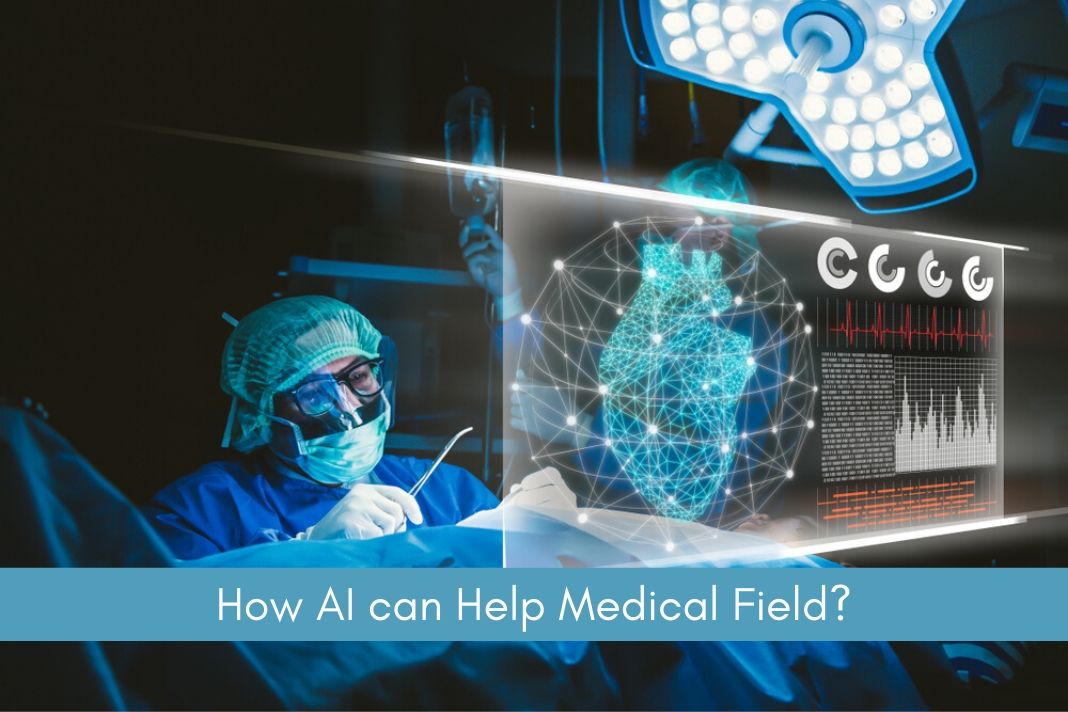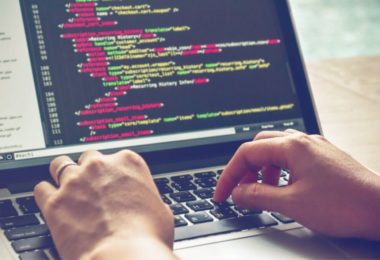
Artificial Intelligence (AI) is rapidly developing. It has changed the landscape of technology and created new fields that were hitherto not possible.
Globally, people have positive expectations from AI’s potential and the possibilities it opens. While it can remove a few jobs, it can create more. It has already changed the way many sectors operate. Healthcare is one industry that has several promising applications for AI.
It will have a significant impact on the way healthcare is delivered, and on the way medical professionals go about their profession.
AI also shows promise for professionals who are skilled in medical professionals and IT delivery because they can design and deliver healthcare products. The world of medicine is awash with data. There are so many reports, scans, prescriptions, billing information that no one analyses for further usage in the bigger picture.
Even on a larger scale, we have a lot of genomic data from mouse to man, all the clinical trials, the drug tests that failed to materialize. There is also information from insurance companies and pharmacies.
Much of this information goes unexamined except in silos for the companies for their records. But this can change. AI can sift through this voluminous information and look for patterns that humans can miss. By combining deep-learning neural networks with machine learning algorithms, we can see a drastic difference in the way healthcare is delivered. There is much scope in the world for change that AI brings. Some of them are
[Also Read: How AI can Help Medical Field? ]
Drug Delivery
The most prominent application that players in the market focus on is drug delivery. Currently, nine out of 10 drugs fail beyond the clinical trials because they are just not viable.
Pharmaceutical companies are looking at using AI as a means of recovering the investment made on drug trials. Machine-learning algorithms can sift through the giant volume of data and the millions of compounds to identify a particular drug target.
Even beyond that, what’s interesting is that AI has the potential to identify new targets because the current theories and biases unencumber it. It could spot the subtle differences between tissues at the cellular level, and identify the genes or proteins that could help in diagnosing problems earlier.
Diagnostic Systems
AI can help in diagnosing problems that can elude the best professionals. By processing the data in the hospital records and the patient details, AI can generate output for diseases much earlier than human professionals can, thus saving a lot of lives(1). AI can also perform activities that are far beyond the capabilities of humans.
It can analyze patterns in the human body and make connections without being biased by the current knowledge of human anatomy. This can help diagnose cardiovascular risks from, say, retinal scans.
The FDA is already approving AI-powered algorithms in the medical industry for expediting diagnoses. AI also has the potential to change the way medical records are maintained and retrieved(2). This has the promise to eliminate human errors and provide early warning signs for diseases that could become highly impossible to cure at later stages.
Mental Health
The increased homicides across the nation have brought to the fore the focus on mental health. What is particularly interesting in this is the connection(3) between mental health and homicidal tendencies. The National Alliance on Mental Illnesses has indicated that the value of lost earnings in terms of economic impact due to mental health was almost $195B(4).
Globally, the economic burden of depression caused a loss of 200 million workdays or $44B in employee costs to the employers, making the issue of mental illness a genuine concern. Health professionals are swamped, and many don’t have access to immediate psychiatric assistance or help of any other kind.
This is where AI can step in. By creating bots using deep-learning algorithms that learn by iteration, it can mimic the performance of professionals and aid in assisting several people who need mental support.
There already are several bots like Tess and Woebot that have managed to reduce the levels of anxiety(5) in patients. Given the enormous economic impact, employers and healthcare professionals alike are focussing on improving AI iterations to improve medical assistance provided to people.
Surgery
AI in surgery is extremely promising. Already there are several non-invasive surgeries and examinations available that don’t even require human intervention. AI provides the foundation for surgeons to use robotic systems during several procedures. Robots can be trained to handle and operate various conditions and situations to make the surgery a smooth process.
Hospitals, insurance agencies, and pharma companies have enough data for AI to process it and detect patterns. These patterns can then be implemented on patients. Given the accuracy of systems, there might arise times when humans don’t even have to be present for surgery. Already robots are capable of performing surgeries, abdomen, colon, and rectum.
They can also perform slightly more complicated surgeries such as knee replacement, cardiovascular or gynecologic surgeries, head and neck, and spinal surgeries. In the future, AI could grow to identify the underlying conditions by centralizing data collection and pinpointing with accuracy the kind of surgery required. Robots can be trained to reduce their error tolerance. This way, human mistakes can be avoided when performing surgeries.
Conclusion:
AI is still developing. Many companies are in various stages of its implementation. Everyone realizes its value and understands the scope that it presents. Healthcare is an extremely promising industry because it requires exceptionally skilled individuals in ever niche within the industry. Whatever the condition of the economy, you can rely on people to grow old and sick. If they do that, the demand for medical professionals will increase.
When the world is going digital, the need for medical professionals who can manage IT services will increase. What the condition of AI will be in the future within the healthcare industry is left to be seen because people are not just visualizing, but realizing the vast scope of its applications only now.




